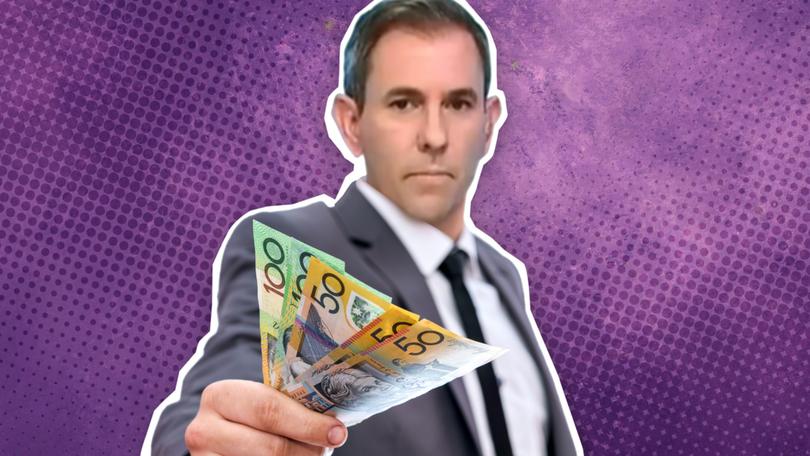AMP deputy chief economist Diana Mousina says record spending could add to inflation and slow productivity
Another economist has sounded the alarm about record Government spending hitting inflation, just as fresh figures reveal the Federal Budget’s outlays have surged.

A top economist has warned that record-high government spending could add to inflation and slow productivity, just as updated Federal Budget figures reveal that payments have surged.
AMP deputy chief economist Diana Mousina said State and Federal spending had hit a record high share of the economy at about 28 per cent in the June quarter.
That followed big lifts in cash flowing to defence, health, aged care, the NDIS and interest costs, Ms Mousina said in a research note.
Sign up to The Nightly's newsletters.
Get the first look at the digital newspaper, curated daily stories and breaking headlines delivered to your inbox.
By continuing you agree to our Terms and Privacy Policy.It comes on the same day the Federal Government revealed its spending had surged by $45bn to be $673bn in the most recent financial year. That increase means Federal payments ran higher last year than at the top of the pandemic.
But the growth in spending was slightly less than predicted in the May budget, leading Treasurer Jim Chalmers to declare a bigger than expected budget surplus had been achieved “because spending is lower”.
The Government posted a second consecutive surplus in what Dr Chalmers declared the “biggest nominal improvement to the budget in a parliamentary term ever”. He said that would help fight inflation and ease cost of living.
In the research note, Ms Mousina said it was unclear what the short-term impact would be of record spending.
“But generally, a ballooning public sector is associated with higher inflation over the long-term — especially if the public sector crowds out the private sector — which means higher interest rates and bond yields,” she said.
“(It) can also be associated with lower productivity growth.”
Ms Mousina said there was no clear evidence that bigger government had any impact on inequality.
The impact of the splurge is especially clear in construction, she said, with workers sucked in to public projects.
The research adds to comments by Westpac senior economist Pat Bustamante last week. Mr Bustamante said the expansion of Government spending meant the “Australian economy is quietly undergoing one of the largest transitions in modern history”.
It would be similar in significance to the mining boom, he said.
Mr Bustamante also warned the shift of workers from the private to the public sector could slow the inflation fight.
Also on Monday, new Productivity Commission analysis showed Aussie workers have struggled to lift their output despite working more hours.
Labour productivity — which measures the value generated in each hour worked — sunk 0.8 per cent in the June quarter, amid strong job growth and a lift in hours worked.
That’s a problem because productivity is the biggest driver of wage growth and living standards for households over the long term.
The slow pace of improvement is also holding back the country from getting inflation under control, the Reserve Bank has warned.
For the full year to June, the key worker metric grew just 0.5 percent.
“During the pandemic, aggregate productivity rose but then fell as restrictions were eased,” deputy chair Alex Robson said.
“This bubble has now well and truly burst, and our productivity level remains at about its 2015–2019 average.
“Increasing productivity is still the surest path to sustainable increases in real wages and higher living standards.”
The commission also warned there’s a growing gap between productivity in the private sector and the industries largely controlled by and subsidised by Governments — although that trend was less clear in the most recent quarter.
But the data shows a roughly 10 percentage point difference has emerged in the past 10 years.
